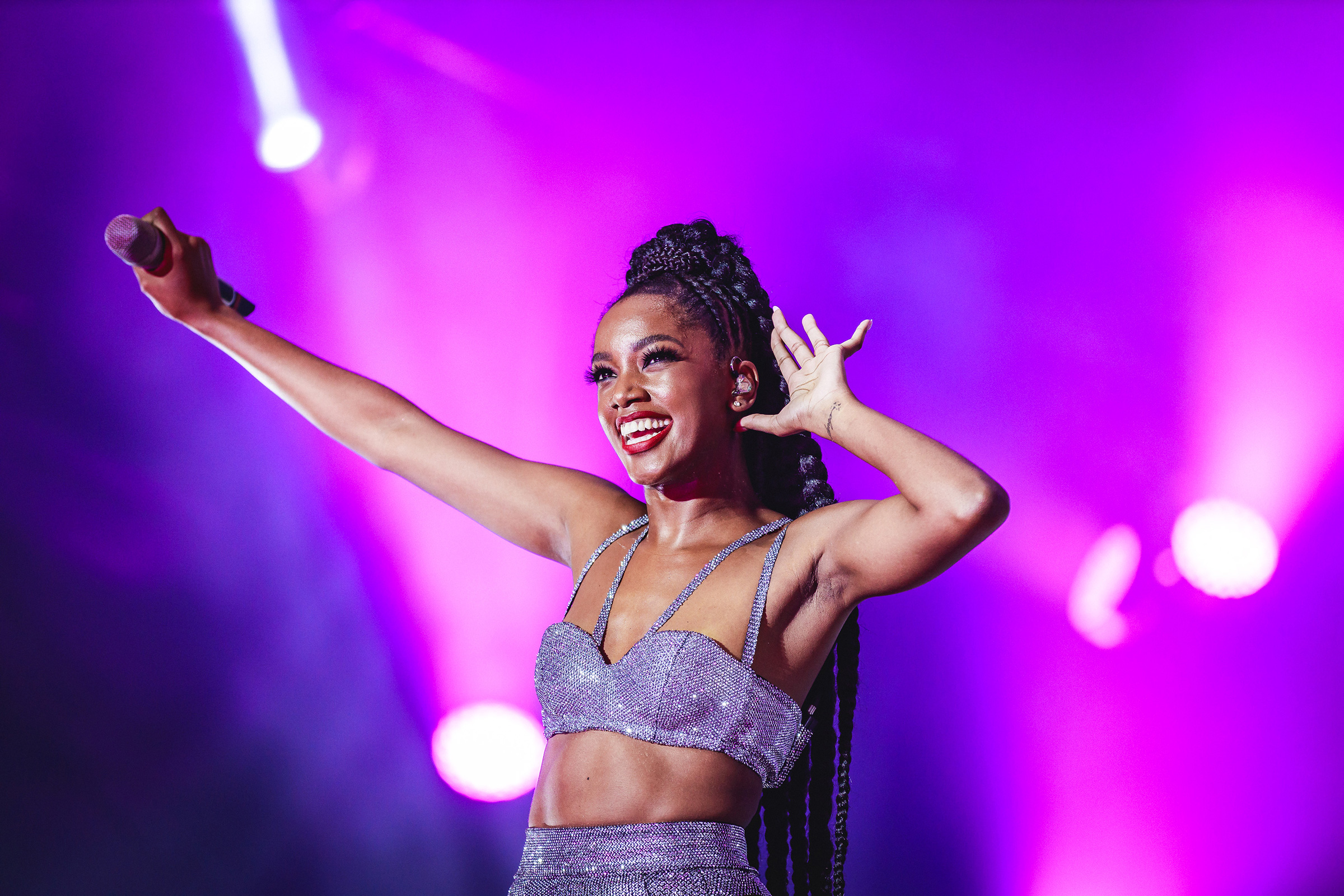Iza is sitting at her home in Rio de Janeiro, drenched in sunlight, talking about Beyoncé. The Grammy-nominated singer-songwriter, born Isabela Cristina Correia de Lima Lima, is recalling the experience of dubbing over Beyoncé’s Nala in 2019’s The Lion King in Portuguese. “To be a part of something Beyoncé is a part of is a dream,” she says. It’s a fitting conversation to be having with the 30-year-old superstar who some have dubbed the Brazilian Beyoncé.
Though she released her first album, Dona de Mim, in 2018, Iza’s rise to stardom began a few years earlier. After leaving a career in advertising at 25, she began to upload song covers to her YouTube channel—where her videos have since garnered nearly a billion views for her original rhythmic hits like “Brisa” and “Pesadao.” She has gone on to collaborate with A-listers like Timbaland, Major Lazor and Ciara.
But reaching this level in Brazil was no easy feat. Growing up, Iza didn’t see Black women like herself reflected in mainstream media. Historically, Afro-Brazilians have been subject to racism, colorism, featurism and eurocentrism, creating barriers in the entertainment industry. In 2013, years before Iza would embark on her own career, Nayara Justino, a dark-skinned Afro-Brazilian woman, was dethroned just days after being crowned carnival queen by the Brazilian television network Globo. Following a racist public backlash, Justino was replaced by a light-skinned contestant; the network denied that skin color was the reason but did not offer any explanation for the change.

Now, Iza, who was named GQ Brazil’s 2020 Woman of the Year, is keenly aware that she’s the representation she so desperately sought as a child. “My responsibility is [heavy],” she says. She’s using her platform to not only share her hit records but bring awareness to the ways in which racism pervades daily life in Brazil—including in the messages of her songs and videos. “People die because of racism everyday [here],” she says.
Nearly 56% of Brazilians identify as Black, making the country home to the largest population of African descendants outside of Africa. But Black people are vastly underrepresented in congress and among business executives and are vastly overrepresented among murder victims and victims of police killings. In May 2020, after the police killing of 14-year-old Afro-Brazilian João Pedro Matos Pinto drew comparisons to the murder of George Floyd, protesters took to the streets of Rio, despite the pandemic, to denounce police brutality. Amid the demonstrations, Iza urged her 14 million instagram followers to support an antiracist manifesto and highlighted the work of Afro-Brazilian activists and academics as well as Angela Davis and Maya Angelou. “I don’t talk about racism because it’s a subject I’m fond of,” she explains. “I talk about it because it’s necessary.”
Iza is symbolic of the new era she’s fighting for—a global cultural embrace of not only Afro-latino artists, but of people and their humanity. “Through the music I can say so much,” she says. “Our microphone is a weapon and it needs to be used.”
- Cybersecurity Experts Are Sounding the Alarm on DOGE
- Meet the 2025 Women of the Year
- The Harsh Truth About Disability Inclusion
- Why Do More Young Adults Have Cancer?
- Colman Domingo Leads With Radical Love
- How to Get Better at Doing Things Alone
- Michelle Zauner Stares Down the Darkness




